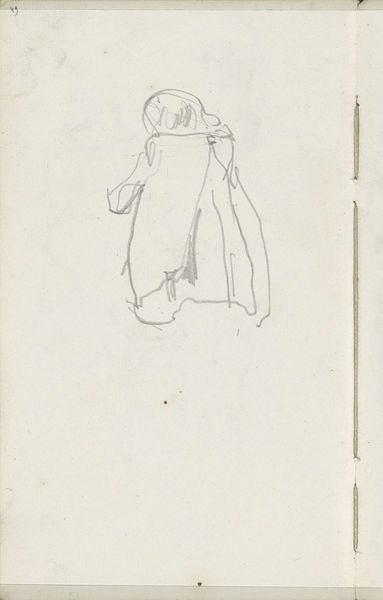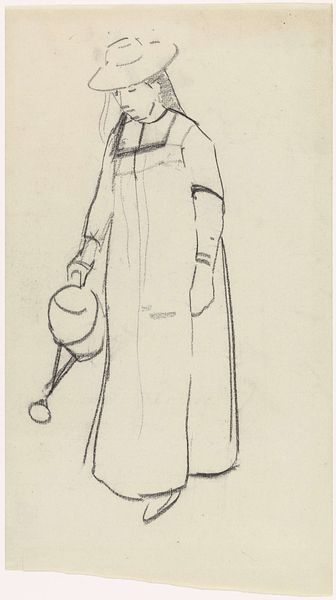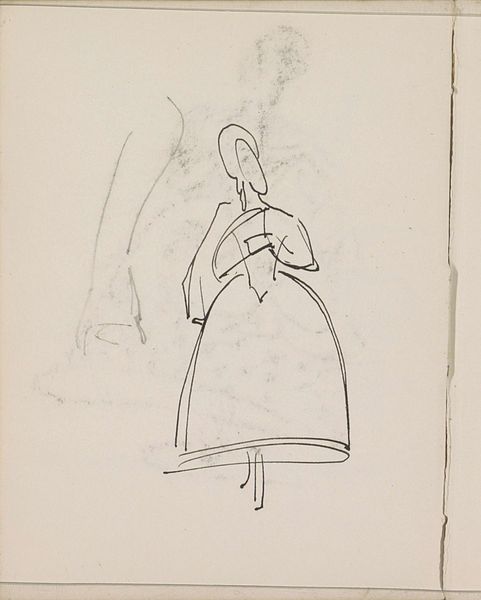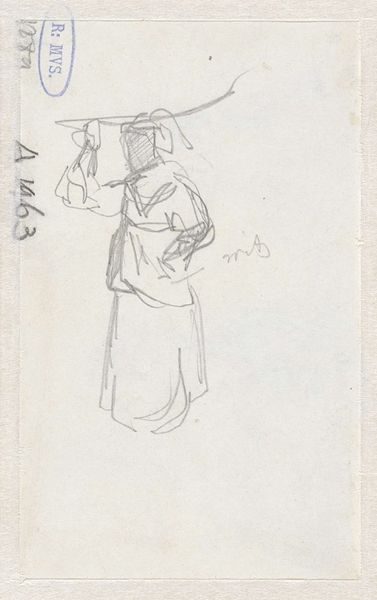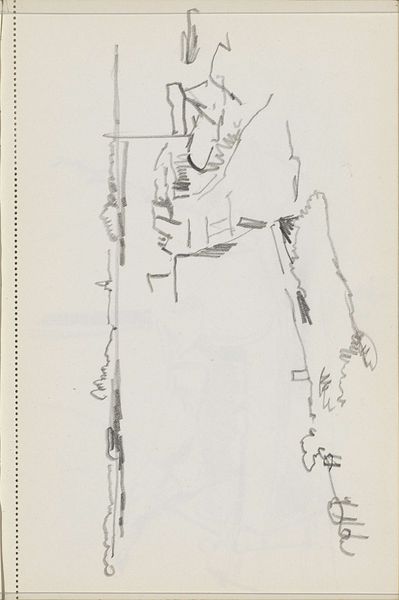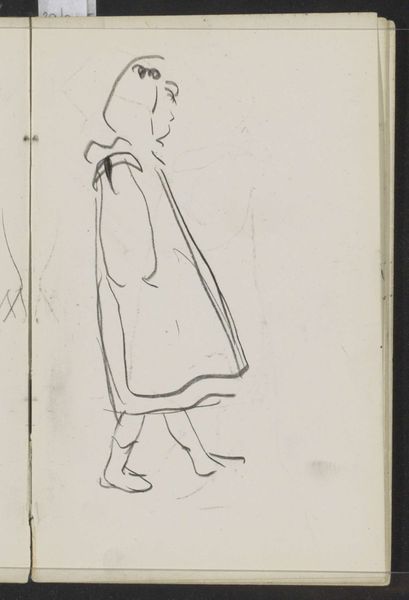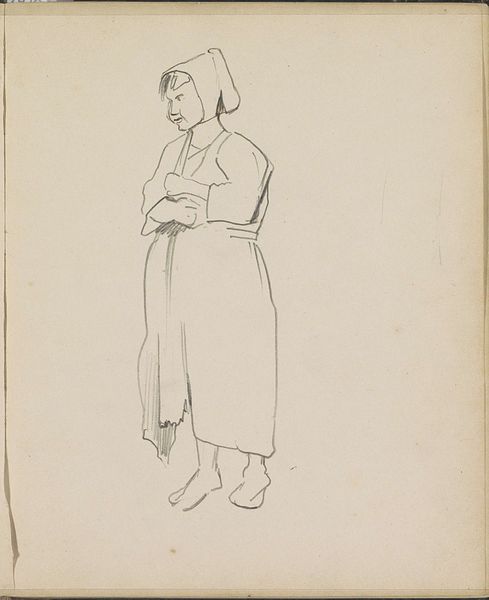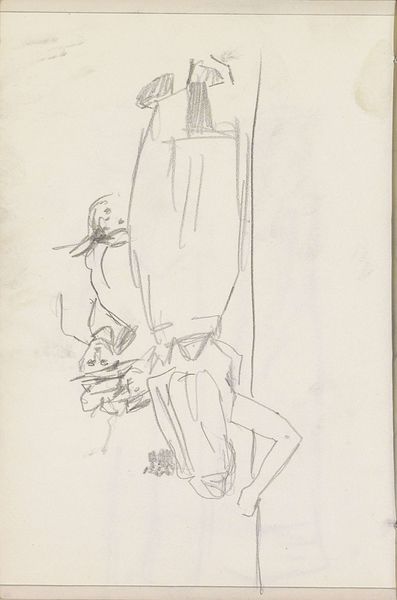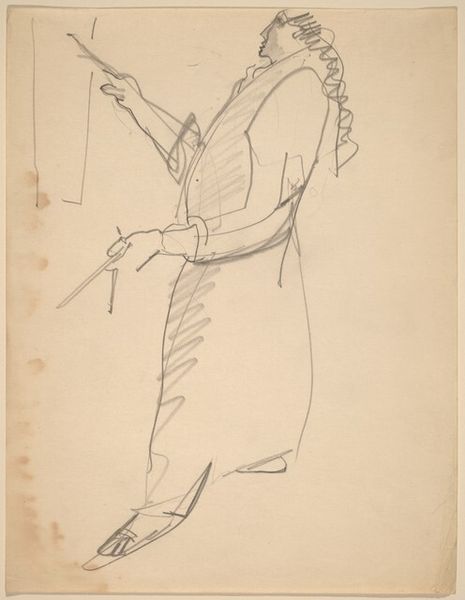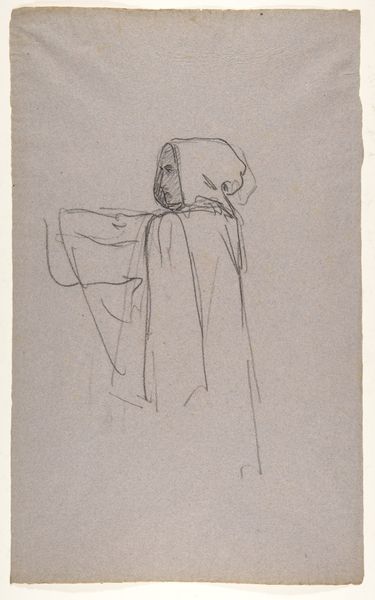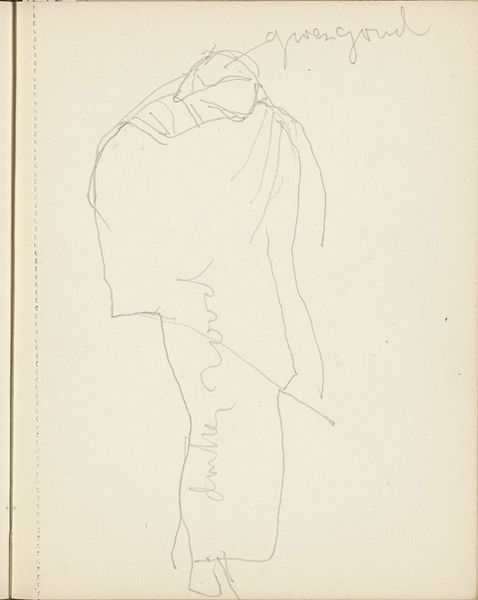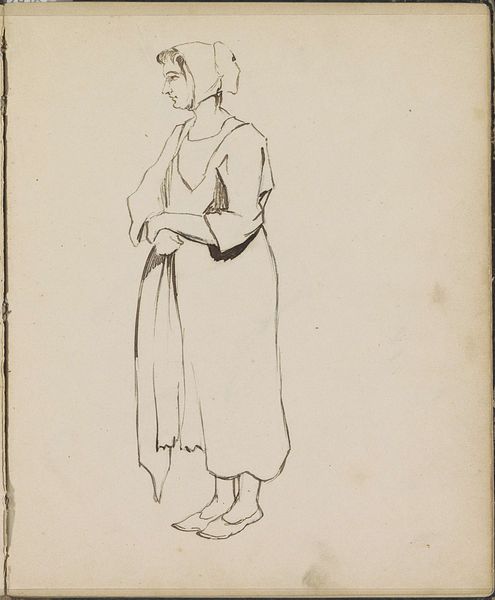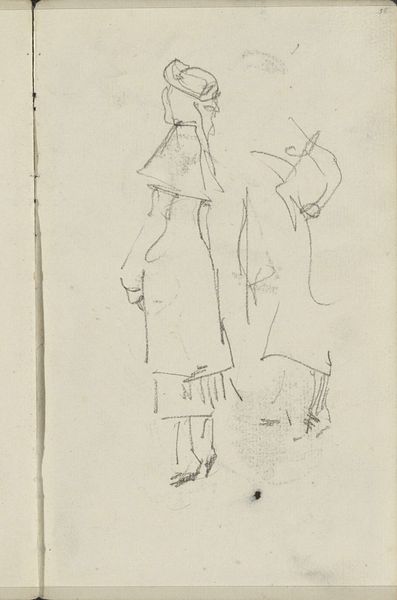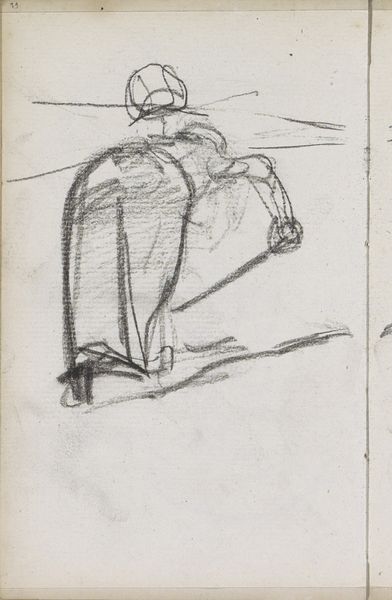
drawing, pencil
#
portrait
#
drawing
#
figuration
#
pencil
#
orientalism
#
abstraction
Copyright: Rijks Museum: Open Domain
Cornelis Vreedenburgh sketched this "Figure in Oriental Costume" in delicate pencil. The figure's headwear immediately captures our attention, a symbol resonating with centuries of cross-cultural exchange. This head covering, coupled with the flowing robe, speaks to a visual shorthand Western artists have often used to denote "the Orient." But what does such imagery truly convey? Consider, for example, the turban's journey through art history, from its association with wealth and status in Renaissance portraits to its appropriation in Orientalist paintings as an emblem of exoticism. The Orientalist artists used the garment to indicate the status or origin of a person. This, with time, evolved to become an exotic, fashionable and symbolic image. Such visual symbols become vessels carrying both conscious and subconscious cultural baggage. They reveal not only the artist's intentions but also our own deeply ingrained perceptions. This cyclical dance of symbols prompts us to question the very nature of cultural representation.
Comments
No comments
Be the first to comment and join the conversation on the ultimate creative platform.
